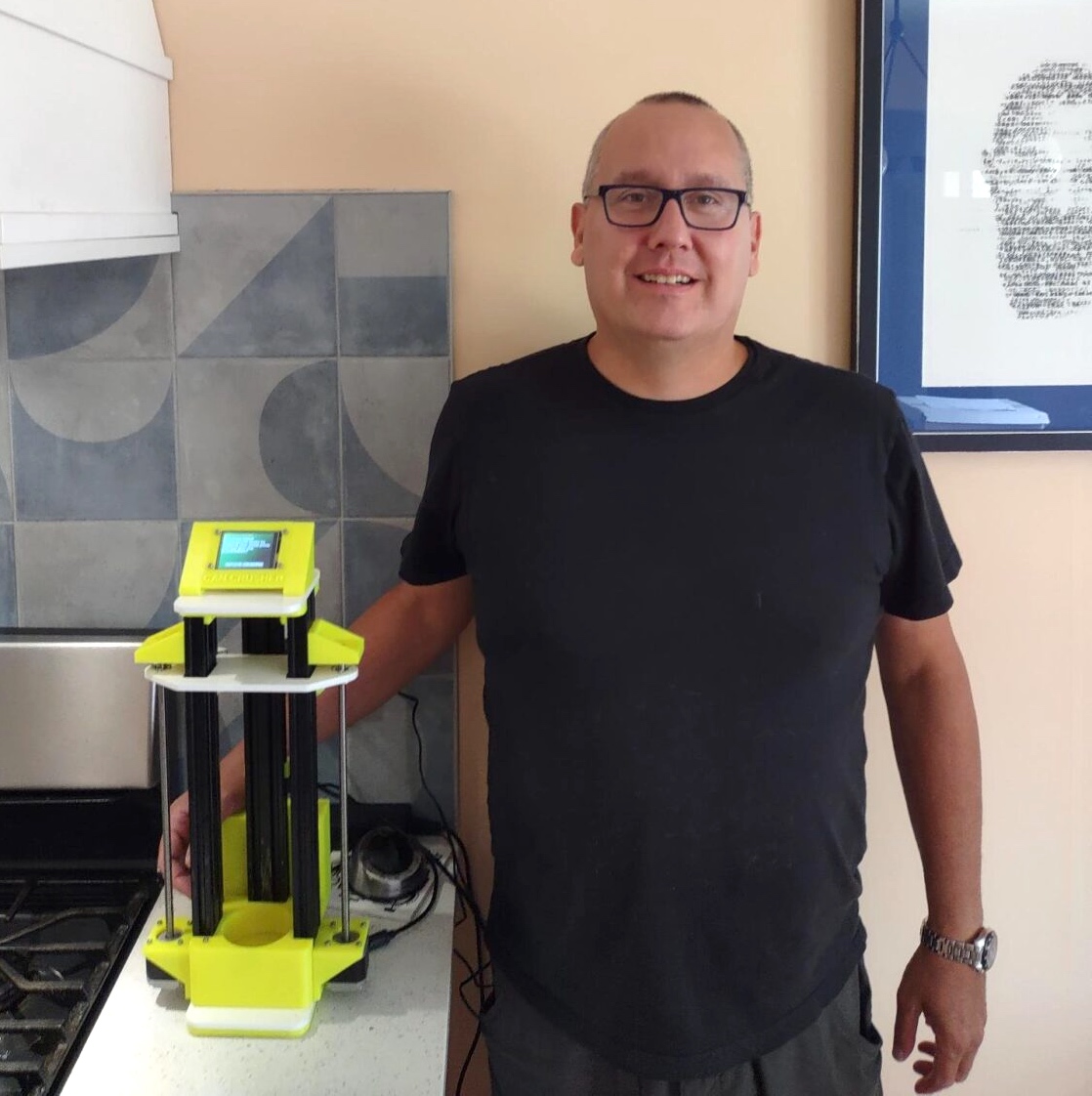Grant Olson grew up in an Iowa town so small that having cable was a rarity. Yet when he was 9 years old, his father acquired a computer that came with books that fascinated Olson enough that he started learning programming.
By his own assessment, his family wasn’t terribly tech savvy, but he’d end up devoting entire summers to playing computer games and typing in codes. Now, at nearly 50 years old and based in Mt. Lebanon, Olson has spent most of his professional life as a software developer.
He’s recently branched out by creating what he calls “the most technologically advanced robotic can crusher in the world.”
“The idea was to obviously build something that can crush aluminum cans,” Olson told Technical.ly. 3D printers were the inspiration to do more: “They have these motors that move things around, and I was kind of looking at it and thinking, ‘Well, basically, if you flip it upside down, it’s like lifting something up and down. So I decided to go ahead and just make something and really push myself on things like actually designing the parts for 3D printing, and actually designing the circuit boards.”

Grant Olson’s can crusher. (Courtesy photo)
Those were technical areas where he didn’t feel too confident. But Olson recently left a job where he’d gained a lot of robotics experience, he said, and decided during his some time off, he wanted to make something from scratch.
He thought back to a family trip to Germany where he observed the utility of deposits for cans through which residents can gain credits or cash in exchange for recycling, and decided there was merit in building a similar device.
“I thought I would just take the time to make projects from scratch where I did everything — the mechanicals, the heart, the electronics — and somehow the idea occurred to me that a lot of stuff that has been there, and the technology, is pretty commoditized,” Olson said. “And I was like, ‘That’s pretty much everything you would need to crush aluminum cans,’ so I decided to that would be my project.”

Can crusher in action. (Courtesy photo)
Olson worked on the project for about two months out of his home. He used the programming language C for the “low-level real-time control code,” and Python for the user interface and display. Check out his code on GitHub and on his website.
The machine itself is relatively easy to use, per the technologist, and while he hasn’t received a lot of feedback on it so far, he would like it to someday be a widely available product that could make people’s lives easier.
“After you finish a can of pop, or a can of beer, you stick it in there, and you hit the button, and it crushes the can and then you put it in the recycling,” Olson said. “The idea is it would be in every home, just making it easy to make less trips down to the garbage can.”
When he began this project, Olson wanted to do something fun that involved multidisciplinary work, specialty software and embedded engineering. Working on the untitled can crusher fit the bill in every way: Testing his skills and doing every job members of a team would typically occupy was time well spent.
“In terms of just getting it to a point where I had a single consumer product, I’m pretty happy with the results,” Olson said.
His 9-year-old self would be proud.
Atiya Irvin-Mitchell is a 2022-2024 corps member for Report for America, an initiative of The Groundtruth Project that pairs young journalists with local newsrooms. This position is supported by the Heinz Endowments.Join our growing Slack community
Join 5,000 tech professionals and entrepreneurs in our community Slack today!
Donate to the Journalism Fund
Your support powers our independent journalism. Unlike most business-media outlets, we don’t have a paywall. Instead, we count on your personal and organizational contributions.

Traditional PPE isn’t made for everyone. Here’s how one startup is fixing it.

Pittsburgh has all the resources to be the next big green energy hub — except the workers to make it happen

Comcast introduces ultra-low lag Xfinity internet that boosts experiences with Meta, NVIDIA and Valve



